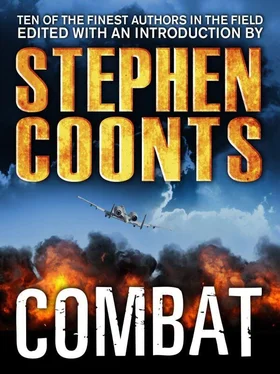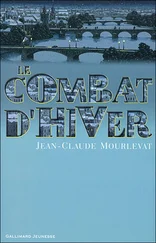* * *
While the Keep was, for the Cyberknights, akin to a dream come true, not everyone found their assignment to the 401st to their liking. As he trudged his way down the long tunnel en route to his office located at the heart of the Keep, Colonel Kevin Shrewsbery tried hard not to think about his command.
An infantry officer with an impeccable record and a shot at the stars of a general, his selection to command the 401st had come as a shock. The mere fact that neither he nor any of his peers in NATO headquarters in Belgium had heard of the 401st when his orders had come in assigning him to that post should have been a warning. “What the hell are you people doing?” he yelled over the phone to his careermanagement officer at Army Personnel Command. “Whose brilliant idea was it to assign me to command a signal detachment? What happened to the brigade at Bragg I was promised?”
Equally ignorant of what, exactly, the 401st was, the personnel officer could only fumble about in search for an explanation. “You were asked for by name,” he replied to the enraged colonel on the other end of the line. “The request for orders assigning you to the 401st was submitted by the Deputy Chief of Staff for Special Operations himself.”
Rather than mollify the irate colonel, this response only served to confuse the issue. In the Army, young up-and-coming officers that bear watching are tagged at an early stage in their careers. The field from which a future Chief of Staff of the Army is chosen is pretty much narrowed down to a select few by the time the rank of major is achieved. Those who have a real shot at that coveted position are usually taken under the wings of a more senior officer, an officer who can guide the Chief of Staff of the Army in waiting along the maze of peacetime career assignments that are mandatory checkpoints. This senior officer, known as a rabbi in the Old Army, ensures that all the right buttons are pushed, and all the right tickets are punched by his charge in order to ensure that his candidate wins the four-star lottery.
Major General William Norton, the current Deputy Chief of Staff for Special Operations, was Shrewsbery’s rabbi. So it was not surprising that the designated commander of the 401st took the unprecedented step of calling Norton at his home at the earliest opportunity. With as much respect and deference as circumstances would permit, Shrewsbery pleaded his case. “Sir, I have never questioned your wisdom or judgment. But assignment to a signal unit? What is this all about?”
Since the phone line was a private home phone and not secure, Norton could not tell his protégé a great deal. “Kevin,” the general stated in a tone that conveyed a firmness that could not be missed, “the Army is changing. The world of special operations and the manner in which we wage war is changing. In order to advance in the Army today, you must ride the wave of change, or be crushed beneath it.” While all of this was sound advice, advice that he had heard time and time again, neither Norton’s words or the fact that he, Shrewsbery, would be reporting directly to Norton himself while commanding the 401st did much allay the colonel’s concerns. His heart had been set on a parachute infantry brigade. Though considered by many an outdated twentieth-century anachronism, the command of a whole airborne brigade was his dream assignment, a dream that now was beyond his grasp.
That was the first chip on Shrewsbery’s square shoulders. As time went on, more would accumulate until it seemed, to Shrewsbery, that he would be unable to walk along the long access tunnels leading into the Keep without bending over.
If there had been a casual observer, one who had the freedom and the security clearance necessary to stand back and look at the 401st from top to bottom and make an objective evaluation of the unit, they would have compared it to a piece of old cloth. In the center, at its core where Shrewsbery sat, the fabric retained its old structure. The pattern of the cloth could be easily recognized and matched to the original bolt from which it was cut. But as you moved away from the center, out toward the edges, the fabric began to unravel, losing its tight weave, some of its strength, and as well as the neatly regimented pattern.
Around the center the observer would see an area populated by the 401st support staff. The recruiters who provided manpower for the unit were assigned here, as were the technocrats who maintained and modified the computers and networks that the Cyberknights used. These staffers liked to think of themselves as the Lords of Gadgets. The Cyberknights called them the stableboys. Also counted as part of the support staff was the intelligence section. While not the equal of the knights in the scheme of things, it was the wizards behind the green door who did much of the seeking.
The intelligence section worked in its own series of tunnels, isolated from the rest of the complex by a series of green doors, a quaint habit the Army’s intelligence types had adopted years ago. There they took the first steps in developing a product that could be used by the operations section and, if necessary, the Cyberknights themselves. Rare information concerning computer hacks on military systems was funneled to them from throughout the Army. Once deposited behind the green doors, the intelligence analysts studied each case handed off to them for action. They looked at the incident and compared it to similar events they had come across in the past in an effort to determine if the intruder was a newbie, or someone that the 401st had met before in cyberspace. Next the analysts were expected to make a judgment call, based in part upon the facts they had on hand, and in part on intuition, as to the nature of the hack.
By the time one reached the edges of the material, the original color and pattern could no longer be discerned. All that one could see were individual strands, frayed ends that were barely connected to the cloth. Each strand, upon closer inspection, was different. Each had a distinct character that little resembled the tightly woven and well-regimented strands that made up the center. Yet it was there, among these strands, where the real work of the 401st took place. For these strands were the Cyberknights, the young men and women who sallied out, into cyberspace, day in and day out to engage their nation’s foes. And while the terms these Cyberknights used were borrowed from computer games, and the skirmishes they fought with their foes were in a virtual world, the consequences of their actions were very, very real.
* * *
While Colonel Kevin Shrewsbery settled in for another long day, Eric Bergeron was in the process of wrapping up his shift. In many ways Eric was the typical Cyberknight. At age twenty-five he had spent five years at Purdue in an unsuccessful pursuit of a degree in computer science. Rail-thin, his issued BDUs hung from him as they would from a hanger, making it all but impossible for him create anything resembling what the Army had in mind when they coined the term “ideal soldier.” Being a Cyberknight, young Bergeron did nothing to achieve that standard. His hair was always a bit longer than regulations permitted. The only time there was a shine on his boots was when he splashed through a puddle and the wet footgear caught a glint of sunlight. Only his babyfine facial hair saved him from having to fight a daily hassle over the issue of shaving.
Making his way along one of the numerous interior corridors of the Keep, Eric didn’t acknowledge any of the people he passed. He neither said hello nor bothered to nod to anyone he encountered on his way to the small, Spartan break room. It wasn’t that he was rude or that he didn’t know the names of those he came across. Rather, his thoughts were someplace else. Like most of the Keep’s population, Eric’s mind was turning a technical problem over and over again. At the moment he was going over his last engagement. Though he had triumphed, it had taken him far too long to ride down the kid in Valparaiso, Chile. This had brought into question his skills, which he took great pride in, as did most of the Cyberknights. This was a far greater motivational factor than all the inducements that had been showered upon them to secure their enlistments or the official rating they all received periodically.
Читать дальше












